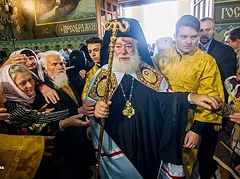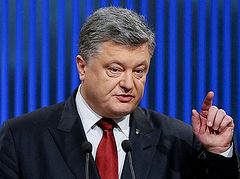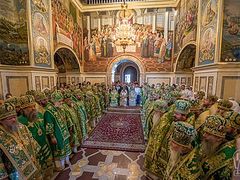Kiev, October 10, 2018
Two religious communities of the canonical Ukrainian Orthodox Church (UOC) have brought legal claims, challenging the right of the Verkhovna Rada, the Ukrainian Parliament, to appeal to the Patriarchate of Constantinople to create a new autocephalous Ukrainian church.
This is now the third suit being brought against the Ukrainian state, as the District Administrative Court of Kiev has also the suit of the Non-Governmental Organization of the Rule of Law regarding the competency of the Ukrainian authorities to interfere in the activities of the Church and religious organizations.
The Rada voted in April to support President Petro Poroshenko’s appeal, though Deputies opposed to Poroshenko’s plan also addressed the Ecumenical Patriarch with their concerns. In the end, the Ecumenical Patriarchate accepted the Ukrainian state’s appeal and has begun acting unilaterally in Ukraine to create a new church.
The two new claims were filed by the communities of Gorodnitsky-St. George’s male Monastery in the Zhytomyr Province and the Church of St. Nicholas in the Berdiansk Diocese, reports Vesti.
“We consider the resolution (adopted on April 19, 2018) to be illegal under the following conditions… The issue on which the resolution was adopted is exclusively a matter for the Church organization and management. According to Part 3, Article 35 of the Ukrainian constitution, the Church and religious organizations in Ukraine are separated from the state,” reads the statement of claim from St. George’s Monastery.
The statement also notes that that internal order of management for the Ukrainian Church does not provide for any state participation, “nevertheless, the state, in the person of the defendant, instead of adhering to the requirements of the law and respecting the traditions and internal rules of the UOC, openly and fragrantly interferes in them.”
The statement of claim from the St. Nicholas Church offers several examples of actions from the European Court of Human Rights, in particular, “S. A. S. v. France,” in which the Court recognized the government’s right only to indirect influence on matters of religion … and only in the interests of the safety of society as a whole.
Both communities are demanding that the Rada’s resolution on the appeal to Constantinople be recognized as illegal and revoked.
Follow us on Facebook!




